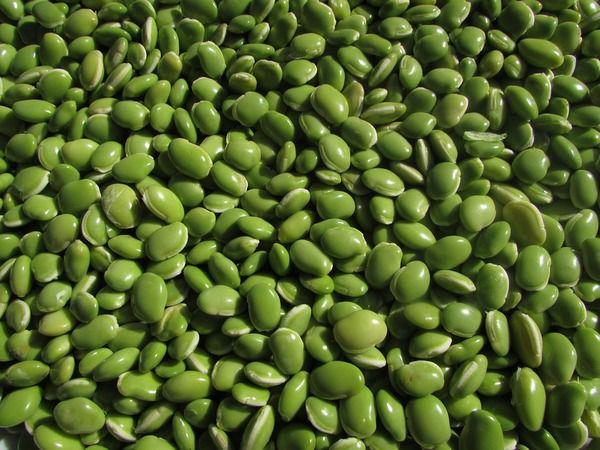Have you ever heard of pigeon peas? These small, vibrant legumes are packed with flavor and nutrition, making them a hidden gem in the world of superfoods. You might be surprised to learn that they offer an array of health benefits that can transform your diet. Originating from tropical regions, pigeon peas have been a staple in many cuisines for centuries. They are not just prized for their taste but also revered for their remarkable nutritional profile. If you’re looking to boost your meals with something wholesome and delicious, it’s time to dive into the wonderful world of pigeon peas!
Nutritional Value of Pigeon Peas
Pigeon peas, also known as Cajanus cajan, pack a powerful nutritional punch. These legumes are an excellent source of plant-based protein, making them perfect for vegetarians and vegans alike.
A single serving offers about 9 grams of protein. This helps in muscle repair and overall body function. Alongside protein, they are rich in dietary fiber, aiding digestion and promoting gut health.
Vitamins and minerals abound in pigeon peas too. They provide essential nutrients like folate, magnesium, potassium, and iron. Folate is crucial for cell division while magnesium supports numerous biochemical reactions in the body.
Additionally, these legumes contain antioxidants that help combat oxidative stress. Their low glycemic index makes pigeon peas a smart choice for those monitoring blood sugar levels.
With such impressive nutritional content, incorporating them into your meals can significantly enhance your diet.
Health Benefits of Pigeon Peas:
Pigeon peas are a powerhouse of nutrition, offering a plethora of health benefits that can enhance your well-being.
These legumes are particularly rich in protein and fiber, making them an excellent addition to any diet. The high protein content helps with muscle repair and growth, while the fiber supports digestive health.
Heart health is another significant advantage. Pigeon peas contain essential nutrients that help lower cholesterol levels and manage blood pressure effectively.
For those looking to shed some pounds, these little gems aid in weight management by keeping you full longer due to their fiber-rich nature.
Additionally, pigeon peas boost your immune system thanks to their antioxidants and vitamins. They play a role in reducing inflammation as well.
They help regulate blood sugar levels, making them a smart choice for individuals managing diabetes or anyone concerned about maintaining steady energy throughout the day.
– Rich in Protein and Fiber
Pigeon peas are a powerhouse of nutrition, especially when it comes to protein and fiber. Just one cup of cooked pigeon peas packs about 10 grams of protein. This makes them an excellent choice for vegetarians and vegans looking to meet their daily protein needs.
On the fiber front, these legumes shine brightly as well. They offer around 11 grams of dietary fiber per serving. Fiber is essential for digestive health, helping to promote regular bowel movements and prevent constipation.
Moreover, incorporating more fiber into your diet can help you feel fuller longer. This satiating effect may lead to healthier eating habits overall.
Whether you’re adding them to salads or soups, pigeon peas provide a satisfying texture that complements many dishes while boosting their nutritional value significantly.
– Good for Heart Health
Pigeon peas are a powerhouse for heart health. Packed with nutrients, they play a significant role in maintaining cardiovascular wellness.
These legumes contain potassium, which helps regulate blood pressure. A balanced blood pressure level reduces the risk of heart disease and stroke.
Additionally, pigeon peas have low levels of saturated fat and cholesterol. This makes them an excellent choice for those looking to support their heart’s function.
The fiber content also contributes to lower cholesterol levels by promoting its excretion from the body. High fiber intake is linked with better overall heart health.
Moreover, antioxidants found in pigeon peas combat oxidative stress and inflammation—two factors that can lead to heart complications over time. Incorporating these tiny legumes into your meals is an easy way to give your heart some extra love.
– Helps with Weight Management
Pigeon peas are a fantastic addition to any weight management plan. Their high fiber content keeps you feeling full longer, which can help curb unnecessary snacking throughout the day.
When you’re satisfied after a meal, it becomes easier to resist those tempting treats that often lead to weight gain. Moreover, pigeon peas have a low glycemic index. This means they release energy slowly into your bloodstream, preventing spikes in hunger and cravings.
Incorporating these legumes into your meals offers not just nutritional benefits but also versatility in cooking. From soups to salads or even curries, they make for delicious and hearty dishes.
This makes maintaining a balanced diet simpler while enjoying flavorful options at the same time. The combination of protein and fiber creates an ideal food choice for anyone looking to manage their weight effectively without sacrificing taste.
– Boosts Immune System
Pigeon peas are a powerhouse for your immune system. Packed with essential vitamins and minerals, they help fortify the body against common infections. Rich in antioxidants, these legumes combat free radicals that contribute to illness.
The high levels of vitamin C found in pigeon peas play a crucial role in enhancing immunity. This vitamin stimulates the production of white blood cells, which are vital for defending against pathogens.
Moreover, pigeon peas contain zinc, an important mineral known to support immune function. Adequate zinc intake helps regulate inflammation and ensures proper cell signaling within your immune system.
Including pigeon peas in your diet can also promote gut health due to their fiber content. A healthy gut microbiome contributes significantly to overall immunity by fostering beneficial bacteria that protect against disease-causing organisms.
– Regulates Blood Sugar Levels
Pigeon peas are a fantastic addition to the diet for those looking to maintain stable blood sugar levels. Their low glycemic index means they release energy slowly, preventing spikes in glucose levels after meals.
This gradual release is particularly beneficial for people with diabetes or insulin resistance. By incorporating pigeon peas into your meals, you can enjoy sustained energy without the crash that often follows high-sugar foods.
The fiber content in these legumes also plays a vital role in regulating blood sugar. It helps slow down digestion and absorption of carbohydrates, making it easier to control blood sugar fluctuations throughout the day.
Including pigeon peas regularly can be a simple yet effective strategy for managing overall health and well-being while keeping your blood sugars steady. They truly offer a delicious way to support metabolic balance!
How to Incorporate Pigeon Peas into Your Diet
Incorporating pigeon peas into your diet is easier than you might think. These versatile legumes can complement a variety of dishes.
Start by adding cooked pigeon peas to salads for an extra protein boost. Their nutty flavor pairs well with fresh vegetables and dressings.
You can also blend them into soups or stews, providing both texture and richness. They absorb flavors beautifully while contributing essential nutrients.
For a unique twist, consider making a savory dip by mashing cooked pigeon peas with garlic, lemon juice, and spices. This makes for an excellent appetizer served with whole-grain crackers or veggie sticks.
Another option is to use them in rice dishes, like biryani or pilaf. The addition of pigeon peas not only enhances the dish’s nutritional value but also adds color and depth to the meal.
Experimenting in the kitchen will reveal just how delicious this legume can be!
Recipes Using Pigeon Peas
Pigeon peas are versatile and can be incorporated into various dishes. One popular option is a flavorful pigeon pea curry. Combine cooked pigeon peas with coconut milk, spices like cumin and turmeric, and fresh vegetables for a hearty meal.
Another delightful recipe is pigeon pea salad. Toss cooked peas with diced tomatoes, cucumber, red onion, lime juice, and cilantro. This refreshing dish makes for an excellent side or light lunch.
For those who enjoy comfort food, try making pigeon pea soup. Simmer the peas in vegetable broth with garlic, carrots, and herbs until tender. Serve it warm on chilly days for a nutritious boost.
If you want something unique, consider adding mashed pigeon peas to your favorite veggie burger mix. This addition not only enhances flavor but also boosts protein content significantly.
Potential Side Effects of Pigeon Peas
While pigeon peas are generally safe and nutritious, it’s important to be aware of potential side effects. Some individuals may experience digestive discomfort, such as bloating or gas, especially if they are not accustomed to consuming legumes regularly.
Additionally, those with certain allergies should exercise caution. Pigeon peas belong to the legume family, which can trigger allergic reactions in some people.
Moderation is key. Consuming large quantities might lead to more pronounced gastrointestinal issues. It’s always a good idea to introduce new foods gradually into your diet and pay attention to how your body reacts.
Being mindful of these aspects ensures you can enjoy the many health benefits without any unwanted side effects from pigeon peas.




